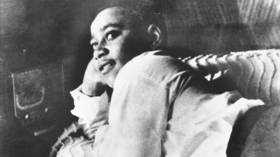Allegations of America’s involvement in the no-confidence motion against the Imran Khan-led government
Pakistan Prime Minister Imran Khan on Thursday named the United States as the country behind a ‘threat letter’ that showed evidence of a foreign conspiracy to oust his government.
On Wednesday, Khan’s Pakistan Tehreek-e-Insaf-led government confirmed that its allegation about a foreign conspiracy was based on a diplomatic cable received from one of the country’s missions abroad.
“The letter stated that the no-confidence motion was being tabled even before it was filed, which means the Opposition was in contact with them,” Khan alleged in his address to the nation.
At a massive public meeting held on Sunday in Islamabad, Khan had pulled out a piece of paper from his pocket and waved it at the crowd, claiming it was evidence of an “international conspiracy” being hatched to topple his government.
Khan, 69, said the memo was against him, not against the government. “…it stated that if the no-confidence motion passes, Pakistan will be forgiven, if not, there will be consequences.” He stated that it was an “official letter” that was communicated to Pakistan’s ambassador, who was taking notes during the meeting.
The premier said the envoy was told that if Imran Khan remains in power, Pakistan would face “difficulties”.
“I am telling my nation today that this is our status. We are a nation of 220 million and another country — and they are not giving any reason — [is issuing threats]. They said that Imran Khan decided to go to Russia on his own even though the Foreign Office and the military leadership was consulted.
“Our ambassador told them that the decision [to visit Russia was made after consultations] but they are denying it and saying that ‘it was only because of Imran Khan and that our ties cannot be good if he stays.’ What they are actually saying is that they have no issue with the people who will replace Imran Khan.
Khan met President Vladimir Putin in the Kremlin on February 24, the day the Russian leader ordered a “special military operation” against Ukraine. Khan also became the first Pakistani premier to visit Russia in 23 years after former premier Nawaz Sharif travelled to Moscow in 1999.
Earlier this month, Pakistan had abstained from voting in United Nations General Assembly (UNGA) resolution calling on Russia to stop the war, and urged that the conflict be resolved through dialogue and diplomacy.
Pakistan’s ties with Russia have moved past the bitter Cold War hostilities in recent years and the chill in the relations between Pakistan and the US has further pushed the country towards Russia and China.
At the same time, Pakistan’s relations with the US have been lukewarm and President Joe Biden is yet to make a customary call to Prime Minister Khan since his appointment in January 2021.

 Anonymous
Anonymous